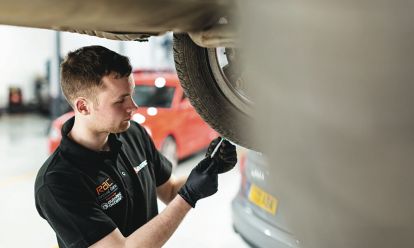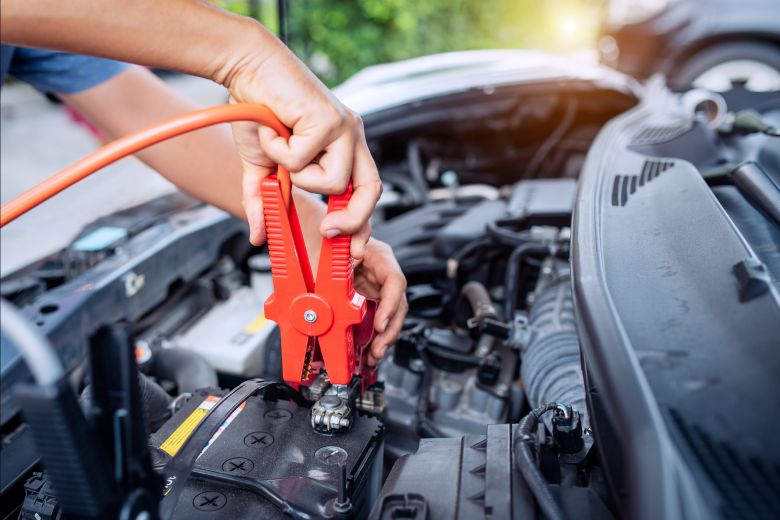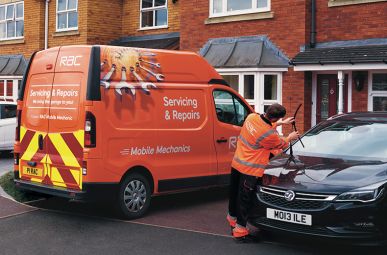Knowing how to charge a car battery is important for all drivers. This guide will give you all the information you need to keep your car battery in the best condition possible.
Importance of a car battery
Car batteries are essential components of all vehicles.
When starting the engine, after the driver turns the key or pushes the ignition button, the battery releases a surge of electrical energy to crank the engine, initiating the combustion process.
This power then keeps the engine is running. It also powers the lights, radio, air conditioning, and other accessories.
The vehicle's alternator takes over to power the electrical systems and recharge the battery.
Also, the battery serves as a voltage stabiliser for the entire electrical system. It helps prevent voltage spikes that could damage parts of the engine.
When a car is parked the battery can then provide temporary power for essential functions such as headlights, hazard lights, and interior lights.
Finally, the battery powers safety features like ABS (Anti-lock Braking System) and airbags.
Problems with car batteries
Alongside the common issue of a flat battery, there are several other potential problems to look out for.
This can normally happen is you leave the lights, radio, or other accessories on when the engine is off can drain the battery.
Corrosion and sulfation are also common issues for batteries. These can happen when the battery isn’t correctly maintained.
Another side effect of poor maintenance is damage to the battery itself. If other parts of the engine aren’t working properly, it could knock wires out of place and dent the casing. This can also lead to short circuiting.
Age is the usual culprit of battery issues. Car batteries can last up to about six years depending on how often you use your car.
However, before you look to charge your battery – beware of the issues caused by overcharging.
If you overcharge, it can cause excessive heat and damage the battery, leading to reduced capacity and a shorter lifespan.
If you are unsure what the problem is visited your trusted local garage.
Have you ever experienced a car battery failure?
Electrical issues?
If your car battery keeps dying or electrical systems are acting up, it could be a faulty alternator. Book an RAC Mobile Mechanic today.


Charging a car battery
To charge a car battery, you will need your toolbox and follow some safety precautions.
- Park your vehicle in a well-ventilated area – not in your garage – and make sure that the engine is turned off.
- Use either need a trickle charger or a smart charger. A smart charger is preferred as it automatically adjusts the charging rate and prevents overcharging.
- The battery will have two terminals: positive (+) and negative (-). They will likely marked with red (positive) and black (negative) covers or symbols.
- If there is no damage or corrosion, remove any covers or terminal protectors from the battery. If there are any issues, take your car to the local garage or call a mobile mechanic.
- Connect the red (positive) charger clamp to the positive terminal of the battery and the black (negative) charger clamp to the negative terminal of the battery. Make sure they are correctly attached before proceeding.
- Set the appropriate charging mode and voltage and then plug the charger into a power outlet.
- Turn on the charger and allow it to charge the battery. The charging time will depend on the charger and the condition of the battery. It can take several hours to fully charge a depleted battery.
- Once the battery is fully charged, turn off the charger and unplug it from the power outlet.
- Following this, you will need to disconnect the charger clamps from the battery terminals. Start with the negative clamp and then remove the positive clamp. Put the protectors back on and test the engine.
If you are not confident charging a car battery yourself, experience problems or would like to get advice from a qualified professional, consider calling a mobile mechanic to assist.
How long should I charge a car battery for?
Depending on the age and model of the car battery, it will take between 10 and 24 hours to perform a full charge. Trickle chargers can take significantly longer, which means you may be waiting two or three days for the battery to completely recharge.
Do not be tempted to disconnect the battery before it has fully charged - an under-charge may result in the battery running flat again and resulting in a breakdown.
Service, repair or MOT?
You can trust the RAC with our local approved garages and NEW mobile mechanics.


High-quality batteries fitted at your home
Skip the garage hassle – RAC Mobile Mechanics come to you!











